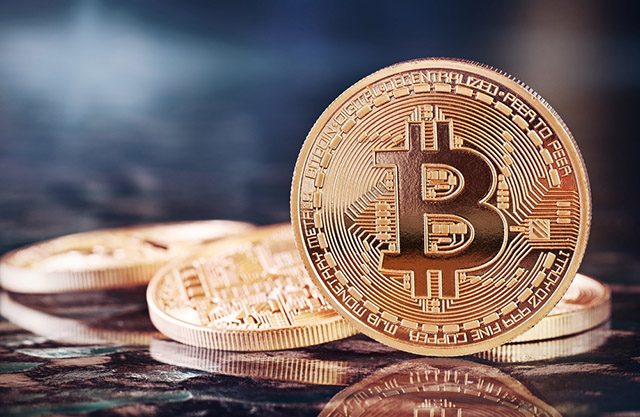SUMMARY
This is AI generated summarization, which may have errors. For context, always refer to the full article.

Currency drives the world. You do work, earn money, spend it on food and other necessities – and the cycle continues. For centuries, in countries around the world, currency has largely been a mix of paper and metal.
But physical currency is changing. Everything is going digital. In developed countries, money is almost entirely virtual these days. Many developing countries are not near that point yet. But for a certain percentage of the population in these places, getting paid via electronic deposits, managing digital bank accounts and paying bills online are becoming the norm.
Bitcoin is based on the concept of conventional currency, except it’s entirely virtual. You never hold a Bitcoin in your hand, at least not in the physical sense. Bitcoin users manage their money via mobile and desktop apps, and pay for goods and services the same way. If you want to pay for something with Bitcoin in the real world, you simply do so via your mobile device, using NFC, Bluetooth or a similar wireless technology.
Bitcoin is the world’s leading digital currency, and it also happens to be one of the most valuable, reaching values of up to $4000 to a Bitcoin as of late. It works on a peer-to-peer payment system, which directly influences the value of the currency. That value should continue to grow as the currency becomes more widespread and better-known, and as more users and companies learn to adopt and trust it. Trust, after all, is what gives currencies its value.
Bitcoin, because of its digital nature and its transcendence of global borders, has value. But like paper money or conventional currency, Bitcoin is still this essentially: a barter or exchange medium to pay for goods and services.
How does Bitcoin work?
A Bitcoin itself is nothing more than a small chunk of data. When someone purchases with Bitcoin, they transfer funds from wallet to wallet, which is a form of virtual bank. Each Bitcoin wallet contains the exact amount of “coins” a user has acquired, whether through purchases, mining or otherwise.
Like your physical wallet or purse, a Bitcoin wallet is secure, and no one can take money out without your consent. In fact, you could argue Bitcoin wallets are more secure, as no one can pickpocket your earnings.
How do you earn Bitcoin? Think of it this way: with regular currency, it’s the country and the banks that are backing up he currency, verifying its value. People trust that the currency issued by the country and the banks has value or buying power. With cryptocurrencies like Bitcoin, that ability to say that a cryptocurrency has value is backed by the network of anonymous computers – the blockchain – that monitors the flow of credit and debt between users.
That’s why they say that cryptocurrencies are a decentralized form of currency; there’s no one central bank monitoring this flow of debt and credit. Instead, it’s the network of computers doing this, and that data is freely available and transparent for anyone to see.
When a user dedicates a computer to this blockchain operation, the activity is called mining. For helping out in the blockchain process, a user is rewared with Bitcoin.
How transactions work
Today, however, mining has become unprofitable and significantly more difficult to achieve. It’s much more common to earn Bitcoins through an online transaction.
A transaction is nothing more than a transfer of value or ownership of said currency. Bitcoin wallets maintain and monitor encrypted data called a private key or seed. This key is used to sign transactions, almost like a signature on your credit bills and receipts. Of course, the encryption means the data is totally secure, and once it’s been issued, it cannot be altered or modified by anyone other than the original key owner.
When a transaction happens, one user transfers a specific amount of Bitcoin to another user’s wallet. The transfer is secure and reliable. Because of how it works, this has also changed the way in which digital transactions sometimes work. For example, transferring Bitcoin is irreversible, so there’s no refund or recovery process if you make a poor transaction as a buyer. This also opens up the opportunity for harmful scams and unscrupulous scenarios, but that’s another matter entirely.
Where is Bitcoin used?
When Bitcoin first appeared, it was mostly honored by online and digital communities. It was hard to find a retailer or large organization that dealt in the currency. Today, however, things have changed considerably. As the currency becomes more popular and more widely accepted, companies have begun offering customers the option to pay via Bitcoin.
Some of the biggest names include Microsoft, Steam, Dell, Shopify, Newegg, Reddit, Overstock, WordPress, Subway and much more.
You might be surprised to find out, however, that Bitcoin is directly influencing modern currencies too. More specifically, blockchain – the secure foundation behind Bitcoin – has a lot to offer the financial world. According to an industry report from BDO Global (an international accounting firm not to be confused with the Philippine bank), 15% of banks plan to use blockchain in 2017 to secure their data and platforms.
Banks are interested in blockchain because it’s decentralized, yet extremely secure. No one can access or modify a chunk of data without the private key or seed we talked about earlier.
This means currencies and data cannot be influenced by outside parties. It also means you have a more secure and trustworthy way to store your data – or in the world of banks, your currency.
Of course, it will be some time before large financial organizations adopt this technology. As the value of Bitcoin soars, they’re just now starting to realize its full potential. – Rappler.com
Add a comment
How does this make you feel?
There are no comments yet. Add your comment to start the conversation.